Intro
Discover common cold virus symptoms, including runny nose, cough, and sore throat, and learn about prevention, treatment, and management of respiratory infections and flu-like illnesses.
The common cold is one of the most widespread illnesses globally, affecting millions of people every year. It's a viral infection that targets the upper respiratory system, causing a range of symptoms that can be quite debilitating. Understanding the symptoms of a cold virus is essential for effective management and treatment. In this article, we'll delve into the world of cold virus symptoms, exploring what they are, how they manifest, and what you can do to alleviate them.
The common cold is caused by a variety of viruses, with the rhinovirus being the most common culprit. When a cold virus infects the body, it triggers an immune response, leading to the production of inflammatory chemicals. These chemicals cause the blood vessels in the nose and throat to swell, resulting in the characteristic symptoms of a cold. The symptoms can vary in severity and duration, but most people experience a combination of nasal congestion, sneezing, runny nose, and sore throat.
The impact of cold virus symptoms on daily life should not be underestimated. A cold can make it difficult to concentrate, perform daily tasks, and even affect relationships. Furthermore, colds can lead to complications such as sinus infections, bronchitis, and pneumonia, especially in vulnerable populations like the elderly and young children. Therefore, it's crucial to recognize the symptoms of a cold virus and take steps to manage them effectively.
Cold Virus Symptoms in Adults
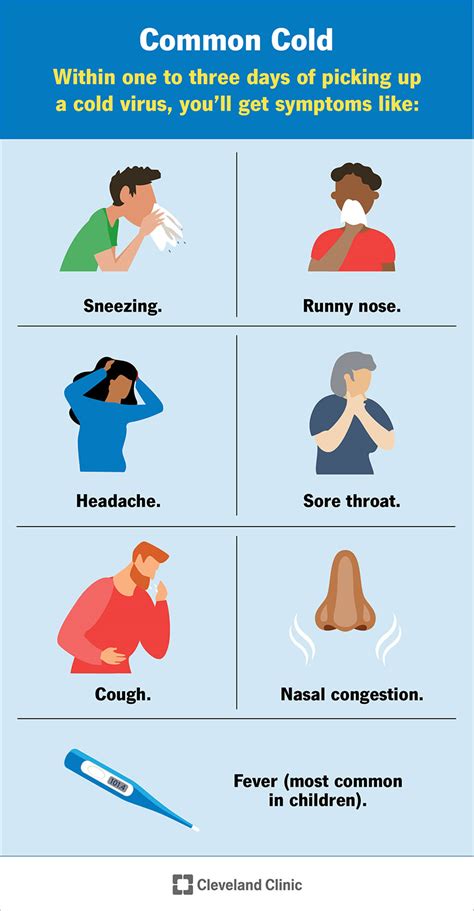
Cold virus symptoms in adults can vary in severity and duration. Some common symptoms include:
- Nasal congestion and stuffiness
- Runny nose, with clear or yellowish discharge
- Sneezing and coughing
- Sore throat and hoarseness
- Fatigue and weakness
- Headaches and facial pain
- Loss of appetite and taste
- Muscle aches and pains
These symptoms can be uncomfortable and disrupt daily life. However, most adults can manage their symptoms with over-the-counter medications, rest, and hydration.
Types of Cold Viruses
There are over 200 types of cold viruses, each with its unique characteristics and symptoms. Some of the most common types of cold viruses include: * Rhinovirus: This is the most common cause of colds, responsible for up to 50% of all cases. * Coronavirus: This virus is known for causing mild to moderate cold symptoms, but it can also lead to more severe illnesses like pneumonia. * Adenovirus: This virus can cause a range of symptoms, from mild colds to more severe illnesses like bronchitis and pneumonia. * Respiratory syncytial virus (RSV): This virus is a common cause of colds in children, but it can also affect adults, especially those with weakened immune systems.Cold Virus Symptoms in Children
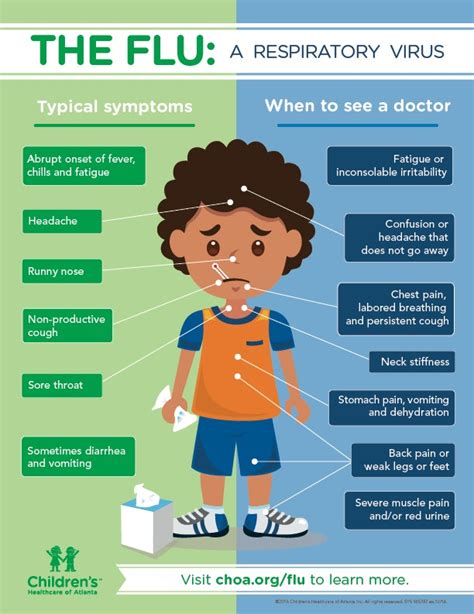
Cold virus symptoms in children can be more severe and unpredictable than in adults. Some common symptoms include:
- Runny nose and congestion
- Coughing and sneezing
- Sore throat and hoarseness
- Fever and chills
- Loss of appetite and vomiting
- Diarrhea and abdominal pain
- Irritability and fussiness
Children are more susceptible to complications from colds, such as ear infections, pneumonia, and bronchitis. Parents should monitor their child's symptoms closely and seek medical attention if they notice any signs of distress or severe illness.
Managing Cold Virus Symptoms
While there is no cure for the common cold, there are several ways to manage the symptoms and reduce the risk of complications. Some effective strategies include: * Staying hydrated with plenty of fluids, such as water, tea, and soup * Using over-the-counter medications, such as pain relievers and decongestants * Practicing good hygiene, such as washing hands frequently and avoiding close contact with others * Getting plenty of rest and avoiding strenuous activities * Using a humidifier to add moisture to the air and relieve congestionCold Virus Prevention
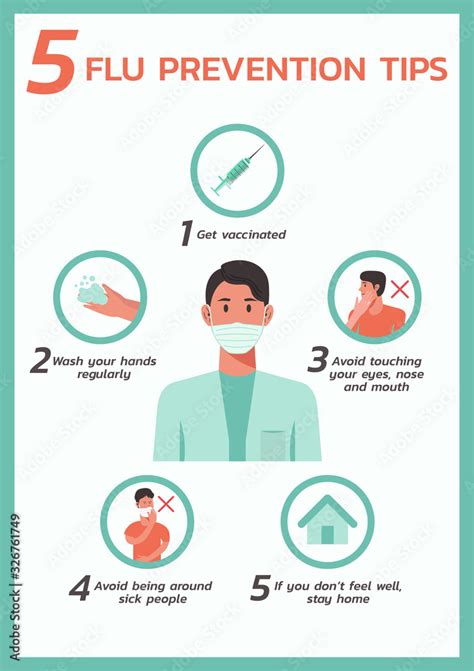
Preventing the spread of cold viruses is crucial for reducing the risk of illness. Some effective strategies include:
- Washing hands frequently with soap and water
- Avoiding close contact with others, especially during peak cold season
- Avoiding sharing utensils, glasses, and other personal items
- Getting plenty of sleep and maintaining a healthy lifestyle
- Avoiding stress and managing stress effectively
Cold Virus Complications
While most colds are mild and self-limiting, some people may be at risk of developing complications. Some common complications include: * Sinus infections: These can occur when the cold virus infects the sinuses, leading to symptoms like facial pain, congestion, and discharge. * Bronchitis: This is an inflammation of the bronchial tubes, which can cause symptoms like coughing, wheezing, and shortness of breath. * Pneumonia: This is a serious infection of the lungs, which can cause symptoms like fever, chills, and difficulty breathing.Cold Virus Treatment
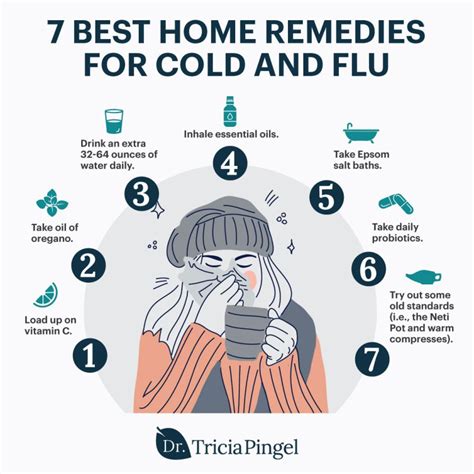
While there is no cure for the common cold, there are several treatments that can help alleviate symptoms. Some common treatments include:
- Over-the-counter medications, such as pain relievers and decongestants
- Prescription medications, such as antibiotics and antiviral medications
- Home remedies, such as honey, lemon, and ginger
- Alternative therapies, such as acupuncture and herbal supplements
Cold Virus Vaccines
There is no vaccine available for the common cold, but researchers are working on developing vaccines for specific types of cold viruses. Some promising areas of research include: * Rhinovirus vaccines: These vaccines aim to protect against the most common cause of colds. * Coronavirus vaccines: These vaccines aim to protect against the coronavirus, which can cause mild to severe illnesses. * Adenovirus vaccines: These vaccines aim to protect against the adenovirus, which can cause a range of symptoms from mild colds to severe illnesses.Cold Virus Diagnosis
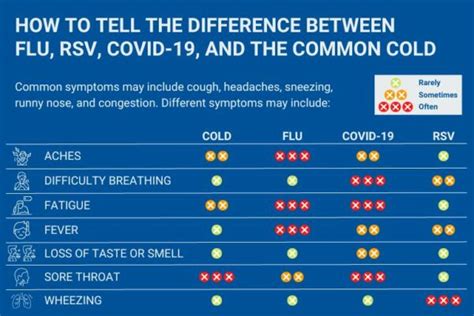
Diagnosing a cold virus can be challenging, as the symptoms can be similar to other illnesses. Some common diagnostic tests include:
- Physical examination: A healthcare provider will perform a physical examination to look for signs of illness, such as a runny nose, congestion, and sore throat.
- Medical history: A healthcare provider will ask questions about the patient's medical history, including any previous illnesses or allergies.
- Laboratory tests: A healthcare provider may order laboratory tests, such as a rapid strep test or a viral culture, to confirm the diagnosis.
Cold Virus Misconceptions
There are several misconceptions about cold viruses that can lead to confusion and misinformation. Some common misconceptions include: * Antibiotics can cure a cold: Antibiotics are only effective against bacterial infections, not viral infections like the common cold. * You can catch a cold from being cold: While cold temperatures can make you more susceptible to illness, they don't directly cause colds. * You should starve a cold: Eating a balanced diet can help support the immune system and reduce the severity of symptoms.What are the most common symptoms of a cold virus?
+The most common symptoms of a cold virus include nasal congestion, runny nose, sneezing, sore throat, and fatigue.
How long does a cold virus last?
+A cold virus can last anywhere from 7 to 14 days, depending on the severity of the symptoms and the individual's immune system.
Can you prevent a cold virus?
+While there is no surefire way to prevent a cold virus, you can reduce your risk by practicing good hygiene, getting plenty of rest, and maintaining a healthy lifestyle.
What are the complications of a cold virus?
+Complications of a cold virus can include sinus infections, bronchitis, and pneumonia, especially in vulnerable populations like the elderly and young children.
Can you treat a cold virus with antibiotics?
+No, antibiotics are only effective against bacterial infections, not viral infections like the common cold.
In summary, understanding cold virus symptoms is essential for effective management and treatment. By recognizing the symptoms, practicing good hygiene, and maintaining a healthy lifestyle, you can reduce your risk of illness and alleviate symptoms. If you're experiencing severe or persistent symptoms, it's essential to consult with a healthcare provider for proper diagnosis and treatment. We hope this article has provided you with valuable insights into the world of cold viruses and encouraged you to take proactive steps to protect your health. Share your thoughts and experiences with us in the comments below, and don't forget to share this article with your friends and family to help spread awareness about cold virus symptoms.
